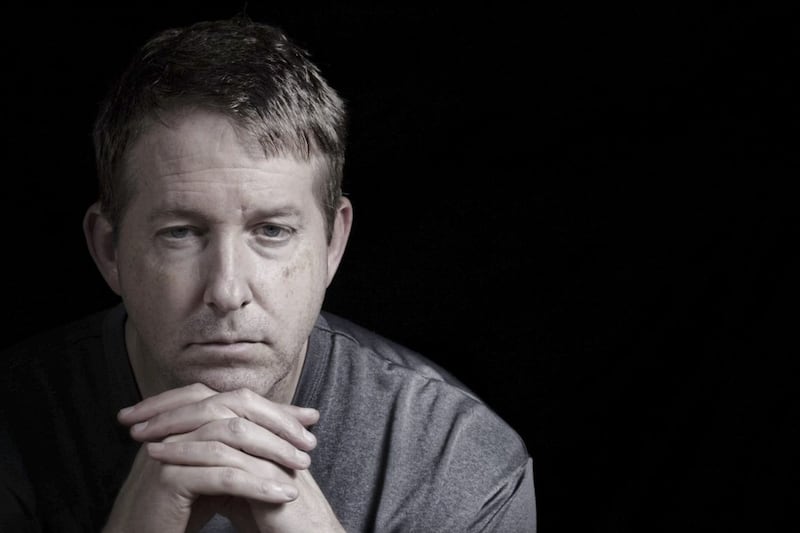WHY are people reluctant to admit to having mental health issues? After all, one in four will experience such problems each year and by 2030 it’s said that globally depression will be the leading illness.
It’s more socially acceptable to have a physical ailment, find a lump or break a leg, something you can bandage or actually show to the doctor; with a mental illness, there’s a stigma. Perhaps it’s because in years gone by anyone with severe depression or anti-social tendencies would be locked away, disappear without trace and the language would be cruel: He’s 'a nut case’ or she’s 'barking mad’ or has ‘a screw loose’. Many people are still advised not to talk about depression in work: it could be noted down on your records and be to your disadvantage in the future.
The ‘shame’ surrounding this subject is being addressed with the help of Prince William, his wife and brother supporting World Mental Health Day; television advertising; the Royal College of Psychiatrists' campaigns like No Health Without Mental Health – the encouragement is to talk about the illness out loud and take that shame away.
It’s not surprising that depression and anxiety is causing such concern, the way things are going. It’s easy to get down over the news not only here in Northern Ireland but also in London where the future of the UK is bound up with Brexit – horrible word for a horrible situation. And then there’s the US of A. At this point words fail me.
But getting down about a situation isn’t why I was talking to Michelle Francis-Naylor when I visited the Galgorm Private Clinic. This is a newly established and locally unique service opened last November and based in Galgorm Village. Here five qualified psychiatrists, all holding consultant posts in hospitals in Northern Ireland, offer a range of services assessing and treating conditions such as bipolar affective disorder, schizophrenia, panic disorder, post traumatic stress, substance misuse as well as child and adolescent attention deficit hyperactivity disorder. But, of all the cases they see, depression dominates.
There are degrees of depression: mild, moderate and severe. There are signs to watch out for. If low mood, sleep disturbance, decreased energy and poor interest are present every day for more than two weeks then this may point to a clinical depressive episode.
Moderate depression will have the same symptoms but more pronounced and when it comes to severe cases, episodes of psychotic symptoms, delusions and hallucinations are common. Some depressed patients may turn to using alcohol or drugs in an attempt to reduce stress and alleviate sleeping difficulties but this only exacerbates their illness and causes them physical harm.
There’s evidence that mental disorders can be hereditary but in all cases the sooner the patient gets attention the better the chance of, at best, recovery, at least, improvement.
Treatment may be anti-depressants at the end of the day but talking through the situation, unburdening to someone who is well versed in the illness is the first step. Attending a GP surgery for help is often difficult – it can be hard to articulate a range of psychiatric or psychological symptoms in a short appointment.
Certainly the NHS has tremendous resources but it is swamped with demand and waiting lists are long so, as in other disciplines, private clinics are offering immediate response and swift assessment.
“Mental illness affects people of all ages but with depression we often see middle-aged men who are facing retirement or poor physical health. It’s a culture thing here; boys are told men don’t cry so they keep their emotions to themselves. It takes time to unravel these emotions and gain their confidence. Women, on the other hand, often turn to other women and tend to have a social network to support them.”
At one time mental health was treated from the top down. Doctors told the patient what was wrong, prescribed pills, recommended a day centre, while friends said 'Count your blessings'. Not helpful.
Today that has turned on it’s head. There’s more talking and listening to the patient and their unique situation, a major improvement is the Recovery Colleges in every health trust rust area where ‘recovery’ is the important word. These colleges offer people educational courses and workshops to help them examine their lives, their relationships and their emotions and become experts in their own self-care, working towards achieving their goals and ambition.
Courses, which are run by professionals, are open to people affected by mental health difficulties, their family and friends, even professionals in the area can take advantage of extending their knowledge by meeting men and women going through some type of trauma.
“You can still function with depression; indeed, mental health issues can lie low for years until something triggers a major reaction – then it’s important to talk to a GP and arrange intervention at an early stage. If this happens it usually means there won’t be so many extreme episodes in future.”
Michelle, who is a consultant psychiatrist, explained that referral to Galgorm Private Clinic is by GP, medico-legal services are available for solicitors and home visits can be arranged on request. Emergency assessments are not provided but appointments are arranged within days.
An initial session could take between 60 and 90 minutes at least and at the end a diagnosis will be arrived at and treatment suggested. It’s a sensitive meeting. A patient might be very upset, often crying with relief that someone is listening; some take longer to articulate their situation but with gentle questioning they eventually begin to talk, as in all cases at the clinic, in complete confidence. Patients are only there because they are feeling a desperation to get help.
Do some get aggressive? “Maybe irritable at times, but you have to understand that we are delving into very private areas of the patient’s life. It’s important that people understand we need good physical health to maintain our mental health and vice versa.”
:: More details: www.galgormprivateclinic.co.uk




